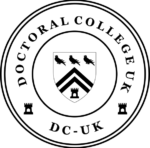Research Integrity
Research Integrity
The Singapore Statement on Research Integrity
The Singapore Statement on Research Integrity, drafted at the Second World Conference on Research Integrity, which took place in Singapore from July 21 to 24, 2010, is an important step toward promoting ethical conduct among researchers around the world.
Resnik (2009) advocates that one of the difficulties with promoting global research integrity is that there are social, political, cultural, and economic differences among nations that affect the conduct of research and influence ethical norms.
The Singapore Statement acknowledges these differences, but maintains that there are some common standards for research ethics that transcend national boundaries and includes four principles – honesty, accountability, professionalism, and stewardship, with fourteen responsibilities for the ethical conduct of research. Resnik (2009) then argues that because research often involves collaborations among investigators, laboratories, and institutions from different countries, it is important for the research community to establish and follow international integrity standards.
For the Singapore Statement to have a lasting impact on global research integrity, researchers and policymakers should read the document carefully and reflect on its implications for the conduct of research. With this as a major consideration Doctoral College promote the Singapore Statement by publicly endorsing it and developing rules and guidelines for ethical conduct consistent with its principles and we will be referring to it when drafting or revising our ethics codes and policies.
Point of contact for Research Integrity
Doctoral college view this point of contact as important so the Dean of Doctoral College UK is the named point of contact who will act as a first point of contact for anyone wanting more information on matters of research integrity. Please use the contact form to make contact about research integrity.
